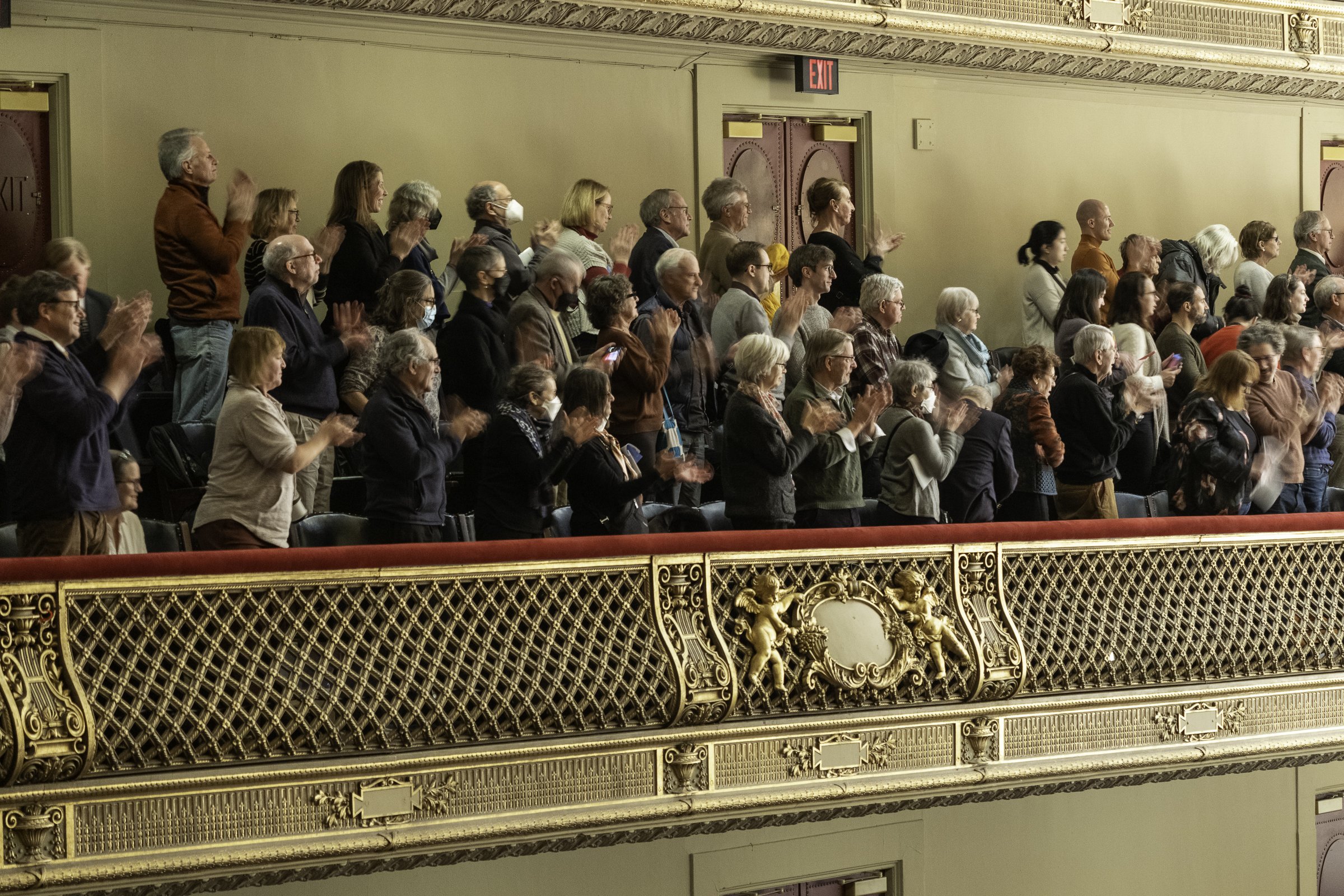Andris Nelsons conducts the Boston Symphony Orchestra, Tanglewood Festival Chorus and soloists in Beethoven’s Ninth, at Symphony Hall Jan. 23. From left: soprano Sara Jakubiak, mezzo Tamara Mumford, tenor David Butt Philip, baritone Andrè Schuen. The BSO performances ran for four programs from Jan. 9–25. Michael Lutch photograph
I have been trying to change my own writing about music—a continuing process. Reviewing and previewing is magnificent fun, but also formatted and superficial. I’m still doing it happily for others—reviewing the Boston Symphony Orchestra’s semi-staged Die tote Stadt this weekend, for Classical Voice North America. But approaching the entire set of Beethoven symphonies as a group this month—spurred by the BSO’s engaging performances of all Nine—seemed a way to reconsider my personal approach. Maybe it has been.
Focusing on particular details—like the Nine as narrative, like Nelsons’s conducting, the string writing, and the prologue-type introductions to some movements—led to close listening, and almost unimaginable fun.
But it was personal. Beethoven transcended the idea of making genres grow—he was growing his own ideas over and over after a while. True or not, that seems like something to try. Looking for the Haydn or Mozart or Bach in the symphonies fails to interest. Even from the early period on, one could be looking for early Beethoven in the Beethoven.
Beethoven must have realized at some point he stood alone in music, no longer amalgamating the past but living in a universe of one. Even if not, we have to listen as individuals. Beethoven changed so much about music. Each experience matters, contributes, stretches. Listening transforms, repeatedly.
His scores were so complex that competent conductors became crucial. Pianos got bigger, louder, more expressive because of him and his music. String quartets and piano trios both became enhanced genres thanks to Beethoven. His mountainous cycles—the symphonies, the piano sonatas, the quartets—still find climbers (and climbers who need guides).
We might have missed out on the Beethoven anniversary year glut in 2020, but I think we also skipped some pejorative discussions about him and the music. Maybe. Anyway, we definitely missed the extensive blather and blasé attitudes that would have accompanied an over-programmed season.
Not here. These concerts sold out, and the audience was charged. The energy onstage was consistently superior. Nelsons was at his best. Political therapy played a part in the energy, but it wasn’t just that for everyone.
Had to include this goofy picture, to show my over-enthusiasm. Boston Symphony Orchestra audience members (permissions?) ovate on Jan. 23, 2025 in Symphony Hall. Michael Lutch photograph
I have over-enthusiastically enjoyed these programs, without confidently achieving any change in approach. These are just descriptions, not insights into some larger whole. In that light, thanks to all for having me in Symphony Hall this month. Especially Beethoven.



